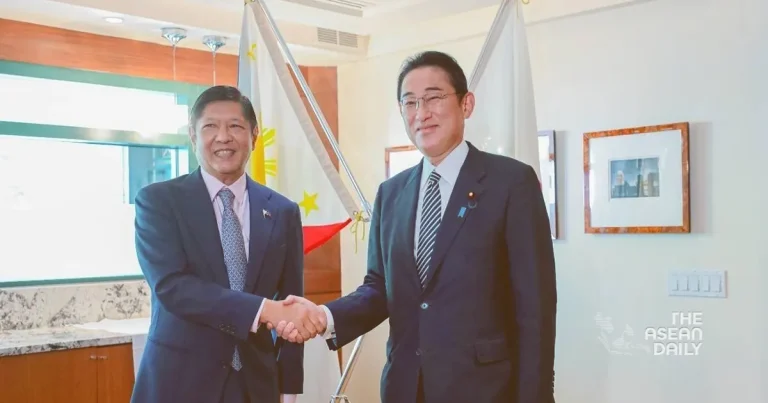8-7-2024 (MANILA) In a significant move that underscores the deepening defence ties between the Philippines and Japan, the two nations are set to sign a crucial defence pact on Monday. The Reciprocal Access Agreement (RAA) will pave the way for the deployment of troops on each other’s territory, marking a new chapter in the long-standing alliance between the two countries.
The signing ceremony, which will be witnessed by Philippine President Ferdinand Marcos, will take place during high-level talks between Japanese Defence Minister Minoru Kihara, Foreign Minister Yoko Kamikawa, and their Philippine counterparts, Gilberto Teodoro and Enrique Manalo, in the Philippine capital.
The RAA negotiations, which began in November, have been driven by the shared concerns of the Philippines and Japan – both long-time allies of the United States – over China’s increasingly assertive actions in the region. The accord will provide the legal framework for the two nations to send defence personnel to each other’s territory for training and other operations, enhancing their operational capabilities and interoperability.
“The RAA was important because it would enable the Philippines to enhance our interoperability with like-minded partners,” said Don McLain Gill, a Manila-based geopolitical analyst. “This would also complement what we are trying to do in terms of enhancing our security partnerships within the US hub and spokes network.”
The move comes amid escalating confrontations at sea between Chinese and Philippine ships, as Beijing intensifies its efforts to solidify its claims over nearly the entire South China Sea. The most recent and serious incident occurred on June 17, when Chinese Coast Guard personnel wielding knives, sticks, and an axe surrounded and boarded three Philippine Navy boats during a resupply mission to Second Thomas Shoal in the Spratly Islands, resulting in a Filipino sailor losing a thumb.
Tokyo and Beijing are also embroiled in a dispute over Japan-controlled islands in the East China Sea, further fueling tensions in the region.
The RAA is viewed as a critical component of the United States’ efforts to strengthen its network of alliances in the Asia-Pacific region, aimed at countering China’s growing military might and influence. Washington has been actively bolstering its “hub and spokes” system, with the Philippines being a key focus due to its strategic location in the South China Sea and proximity to Taiwan, a self-governing island that China claims as its own.
“Philippine support would be crucial for the United States in the event of any conflict,” Gill noted.
Japan, wary of potential future shifts in US policy in the region, is also seeking to play a more significant role as an independent and stabilizing force, according to analysts. Tokyo has signed similar reciprocal access agreements with Britain and Australia in recent years, underscoring its commitment to enhancing regional cooperation.
The Philippines, on the other hand, has equivalent pacts with the United States and Australia and plans to pursue one with France, further solidifying its position as a pivotal player in the region’s security landscape.
Renato Cruz De Castro, a professor of international studies at De La Salle University in Manila, highlighted the strategic importance of the RAA for Japan, stating, “The Japanese would like to impress upon the Americans that Japan is the linchpin of US security presence, military presence here in the region, and of course, the most reliable ally of the United States.”




